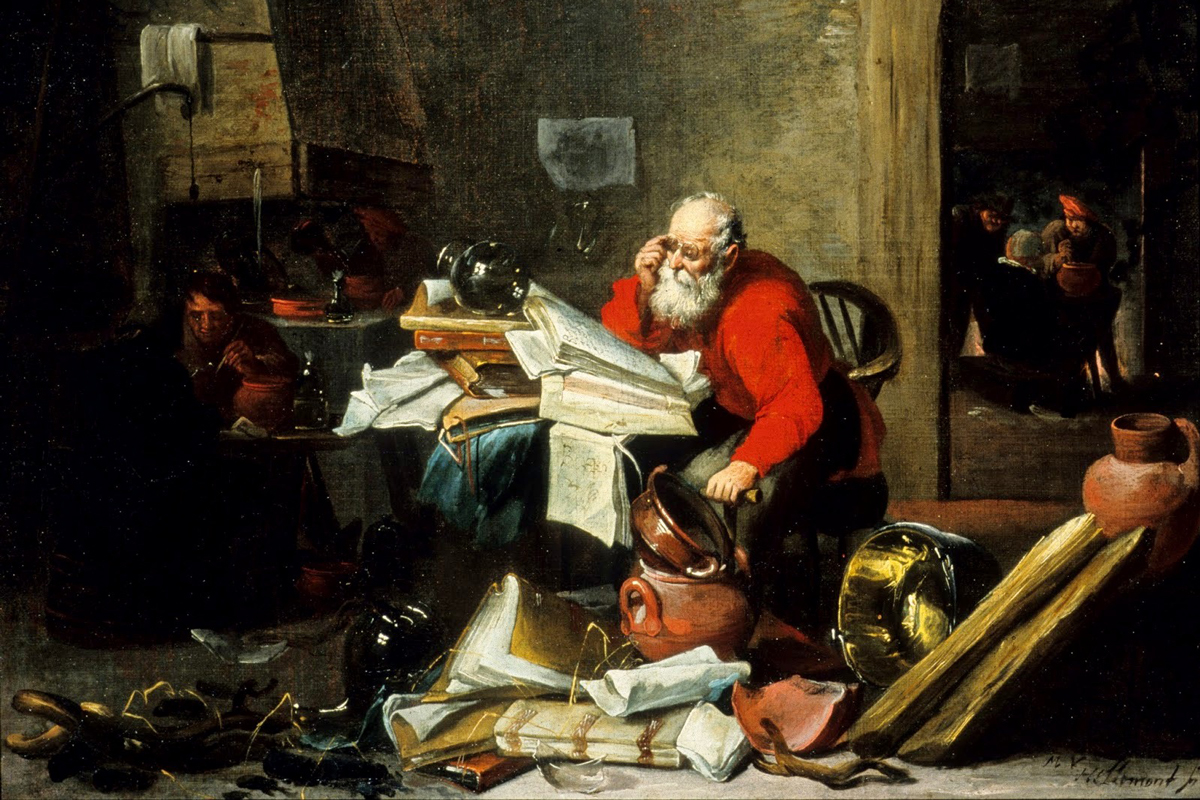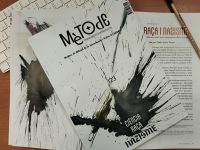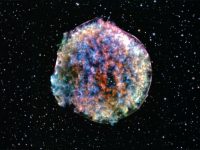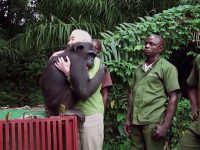What is science?
A historian's perplexities

What is science? This deceptively straightforward question has no single answer, because science is culturally situated, and so has neither a permanent nor a universal meaning. Because modern scientific practices have different histories, they vary from place to place. The significance of science also changes over time, although current understandings are often misleadingly extended to cover the past. Science continues to change, and the science of the future may well be very different from the science of the present
Keywords: science, history, theology, scientist, natural philosophy.
Like other elusive concepts – life, magic, gravity – science is self-evident until you are asked to define it, when it slips away from your grasp as if it were the Wonderland grin on Alice’s Cheshire cat. The snappy but unhelpful response to the question «What is science?» is that it is intrinsically unanswerable – science is a cultural product, and so can have no single meaning. Ideologues may declare that science transcends national boundaries, but in reality theories, instruments and structures vary enormously. As Homer appreciated, even objects are ambiguous: Odysseus is told to carry an oar from his ship inland until he meets people who know nothing about the sea and assume it is a winnowing fan. If a piece of wood is subject to multiple interpretations, how can a complex set of ideas and practices hold any universal significance?
National differences
Science includes not only explanations of how the world works, but also all the people, institutions and techniques involved both in acquiring and in using that understanding (Dear, 2006). But that is not a definition: «includes» is not the same as «comprises», and my understanding of science is inevitably different from yours. Most obviously, there is a barrier between me and any readers who are not native English speakers. This is no mere erudite nicety. Unlike many other European languages, in English the Latin scientia has lost its original meaning of knowledge or wisdom and become restricted in its scope to the natural world. Previously referring mainly to the systematic knowledge found in books, science is no longer differentiated from the practical expertise denoted by ars. Serious misunderstandings can arise when non-native English speakers fail to realise that «scientist» is not synonymous with «academic».

In Britain, the arts-sciences compartmentalization of knowledge and practices was consolidated in the early decades of the nineteenth century, at the same time as new scientific disciplines such as geology and biology were being established. This photograph shows Charles Lyell, who published his Principles of Geology in three volumes from 1830 to 1833. / National Portrait Gallery, London
More fundamentally, I am writing from a British perspective. Because science is localized, I know embarrassingly little about, for example, either Catalan or Castilian science, including their various pasts as well as their current practices. The past inevitably affects the present – which is why history of science can be such a useful as well as such a fascinating topic to study. As an illustration of the significance of place, consider the contrasts between eighteenth-century Britain and France, which adhered to Cartesian models long after Isaac Newton’s ideas had prevailed on my side of the Channel. As Voltaire remarked: «A Frenchman arriving in London finds things very different, in natural science as in everything else. He has left the world full, he finds it empty…» National differences persisted. Many British men of science abjured the Newtonianism of post-Revolutionary France, where God had been eliminated from a deterministic universe, and mathematical theories were dominated by the calculus of Newton’s arch rival, Gottfried Leibniz.
In addition to these theoretical clashes, the organization of science differed. In some ways, London’s Royal Society resembled a gentlemen’s club open to anyone who could afford the subscription, whereas its sibling in Paris benefited from state funding for a limited number of expert researchers. As a consequence, British science was characterized by diverse individual initiatives dependent on wealth that had been either inherited or earned. Entrepreneurial experimenters with insufficient resources to fund their innovations sought investment from patrons, and helped to launch the industrialization that transformed Britain decades before Europe. In contrast, French research was far more oriented towards centrally determined questions, with a centralised educational system enabling men to pursue a structured scientific career.
«Science is a cultural product, and so can have no single meaning»
Geographical variation persists because science and its institutions have their own particular histories and contexts. Despite the rapid improvements in international travel and electronic communication, the forms of science carried out nowadays in Valencia differ not only from those of previous centuries, but also from those in modern Vienna, Vancouver or Valparaíso. For example, many African countries are not in a financial position to build a massive research complex, so many of their most promising graduates emigrate to international clusters located in wealthy countries, where they are engaged in research projects very different from those of their colleagues at home: the Higgs boson is of little value to people who are hungry or under political threat. On the other hand, whereas in Britain and America physics is a male-dominated subject, in Palestine around 80 % of university physics students are women
Change over time
Nowadays, science enjoys such prestige that it feels reassuringly permanent, but its meaning varies with time as well as with place. Like the countries on a political map, academic subjects emerge, coalesce and disappear in a continuous process. Professionalized secular science is only a couple of centuries old, although earlier practices are often misleadingly described as scientific. As well as being divorced from theology, science is now highly mathematized, but in previous centuries there was a fundamental distinction between natural philosophers, who sought explanations of the universe that had been created by God, and mathematicians, who were interested in devising models to describe it effectively, irrespective of whether those represented reality. In the medieval period, divinity was known as the «Queen of the Sciences», and few educated people would have believed either that Christianized Aristotelianism was destined to disappear, or that monasteries would be replaced as seats of learning by state-run universities. Similarly, there can be no certainty that science in its current form is here to stay.
Although many modern scientific disciplines seem continuous with earlier activities, their antecedents would not themselves be labelled as science. Geology, for instance, developed in the early nineteenth century from non-scientific roots, which include digging canals and railway embankments, sketching military terrains, and mining for valuable ores. Similarly, the cumulative daily experiences of farmers and sailors contributed to meteorology, as did the daily weather diaries of leisured gentlemen. Consider also astronomy, a scientific discipline with a particularly long history. Although an astrolabe does not look remotely like the Hubble Space telescope, both these instruments are used for observing celestial objects and so might be bracketed together as scientific. On the other hand, Muslims also used astrolabes for what now seems a non-scientific end – determining the times and direction of prayer. Distinguishing science from non-science becomes still more problematic when you go back further through the centuries to the Babylonians. Their observations provided the basis for Greek astronomy, and they bequeathed to us our circles with 360 degrees and our hours divided into sixty minutes. Yet their aim in collecting information about the stars was not the scientific one of discovering how the world works, but to find auspicious dates for coronations or waging war.
«Nowadays, science enjoys such prestige that it feels reassuringly permanent, but its meaning varies with time as well as with place»
Conversely, some topics that were seen as scientific in the past have since been discredited. Astrology, for instance, demanded great mathematical skills, and phrenology used to be highly regarded, especially by political radicals. But neither practice would now be awarded the accolade of science. Even though alchemy is often dismissed as superstitious rubbish, its instruments and techniques were crucial for the development of chemistry, and – like modern science – it had a well-established body of organised knowledge that was based on experiment and recorded in a coded language understandable only by trained initiates. In contrast, some earlier notions that might also understandably be dismissed as bizarre, such as Aristotelian humours, phlogiston and Ptolemaic epicycles, are instead portrayed as early stages in the path up the mountain of scientific truth.
Diversity
Many celebratory accounts of science portray it as the successful end-product of a process indicating the increasing superiority of north-western Europe. Science is also often depicted as the rise of reason and its supremacy over religion, although critics lament that the emphases on material welfare and technological achievement have devalued spiritual insights and poetic descriptions. During previous millennia, people in different cultures built up extensive knowledge systems designed to describe the world in ways that were useful to them and made sense (Hobson, 2004). Some of these systems have been lost: thus we know nothing about the thought processes underpinning Stonehenge. Others, such as the beliefs of the Incas, have been discarded as wrong or irrelevant to international science, and a few – notably the traditional medical systems of China and India – have recently been revived in a modified form. But most have been incorporated into a triumphalist story of continuous progress, according to which true science was born in Europe during a revolutionary period demarcated by Copernicus and Newton.

Big Science describes projects that are massive not only physically but also in terms of employment, financial investment and state involvement. Above, a photograph of the Large Hadron Collider (known as the LHC) in CERN, European Laboratory for Particle Physics. / CERN
Science is often said to be characterized by its own special method, according to which observations are collected to build up hypotheses, experiments are designed to produce consistent results, and theories are tested by comparing predictions with reality. However ideologically desirable those criteria might seem, they do not always hold true in practice. For one thing, experiments are often intended to confirm theories rather than falsify them; famous examples include Newton’s claim to demonstrate with prisms that white light is a mixture of different colours, and the vindication of Albert Einstein’s General Theory of Relativity by the eclipse expedition of 1919. Robert Millikan won a Nobel Prize for measuring the charge on an electron, but his notebooks reveal how he deliberately omitted all the results that he deemed strange.
«By their very nature, different types of science are associated with different methodologies»
Another objection to the concept of a unifying scientific method is that by their very nature, different types of science are associated with different methodologies. Although physics and chemistry experiments may be reliably replicated time after time in laboratories all over the world, studies of the past – sciences such as palaeontology and astronomy – rely on inference from non-repeatable events. Charles Darwin piled up example upon example to support his theory of evolution by natural selection, but he could provide no instance of it in operation, no explanatory mechanism, and no way of proving its truth or falsity experimentally. As just two further examples: the solar sun-spot cycle of eleven years was established statistically, and its regularity cannot be confirmed with the same certainty as predicting the return of a comet; and some theories are forced to rely on small samples – if only one fossil of a species has survived, there is no way of being sure that its originator was typical.
Disciplines
The label «science» not only brackets together many disparate activities, but also distinguishes them from another loose assemblage known as the «arts». Although the details of discipline formation are nation-specific, the general process is relevant to the problem of attempting to pin down science. In Britain, the arts-sciences compartmentalization of knowledge and practices was consolidated in the early decades of the nineteenth century, at the same time as new scientific disciplines such as geology and biology were being established. Amongst artistic and scientific practitioners alike, there was a move towards professionalization, marked by debates about the risks of commercialization and the difficulty of deciding who should qualify for inclusion in particular groups. The word scientist was not coined until 1833, and one could argue that it is impossible to have science (whatever that might be) without scientists to do it. Far from indicating a high-status position, the label was often interpreted as a somewhat pejorative term to distinguish scientists from philosophers; rejected by eminent figures such as Darwin, it was still being contested in the early twentieth century.
«Science is what scientists do. That definition may be glib, but perhaps it is the best one available»
The international and interdisciplinary scientific terrain changed so rapidly during the nineteenth and early twentieth centuries (Knight, 2009) that yet another new term was invented – «Big Science» – to describe projects that were massive not only physically but also in terms of employment, financial investment and state involvement. Whereas Newton had ground his own lenses by hand in his rooms at Trinity College, Robert Oppenheimer was the chief scientific administrator of a military operation spread across several factory-size locations. In the following decades, all areas of science effectively became Big Science as government, military and industrial funds were poured into vast research projects, often linking centres all around the world. By the beginning of this century, science had grown and diversified still further. New specialities had appeared – evolutionary psychology, nano-electronics – but other areas had been swept together into larger terrains such as the environmental sciences. Paradoxically science itself is starting to disappear, subsumed into STEMM, the latest mega-empire embracing science, technology, engineering, mathematics and medicine.
What is science? This complicated question sounds so straightforward that it deserves a similarly deceptive answer: Science is what scientists do. That definition may be glib, but perhaps it is the best one available.
REFERENCES
Dear, P., 2006. The Intelligibility of Nature: How Science Makes Sense of the World. University of Chicago Press. Chicago.
Fara, P., 2009. Science: A 4000 Year History. Oxford University Press. Oxford.
Hobson, J. M., 2004. The Eastern Origins of Western Civilisation. Cambridge University Press. Cambridge.
Knight, D., 2009. The Making of Modern Science: Science, Technology, Medicine and Modernity: 1789-1914. Polity. Cambridge.





